What do experienced female employees do with their broad expertise, their functioning network and their forward-looking ideas? The members of our Senior Professionals Working Group share their experiences, fears and positive surprises. In doing so, they motivate others to prepare for the career after their career and... even to look forward to it!
What is/was your attitude or fear when you were still fully involved?
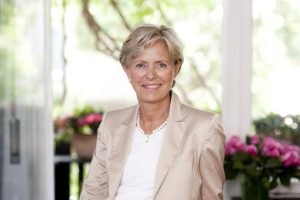 Barbara Rojahn:
Barbara Rojahn:
After the sale of my company "FrauenFinanzBeratung Barbara Rojahn & Kolleginnen" in Stuttgart, I was still employed in the company as managing director for a few years. The daily counselling of women and personnel management was gradually taken over by my younger colleagues, so that I could concentrate on my special topics "Divorce Coaching" and "Inheritance and Inheritance with Execution of Wills". I took these topics with me into my self-employment in Hamburg. Immediately after leaving, I went online with my own new website www.barbara-rojahn.de. So things continued seamlessly with less work and less bureaucracy.
Katherine Starks:
I was afraid that I wouldn't find any clients and wouldn't earn any money.
Evi Vogl:
My questions were: What does the new everyday life look like? Is it important to find new hobbies? Which contacts will remain?
Dr. Anja Hochberg:
Unlike some other Fondsfrauen, I am still fully involved and would like to step on the gas even more in the next few years :-). Nevertheless, I am also in a transition. The fact that my daughter will be going to university in the next few years and that my husband will also be stepping back from his job brings with it the question of what new challenges I will be facing. And I can imagine a lot, both in the executive and in the non-executive area, e.g. as a member of the board of directors, supervisory board or foundation board.
Veronika Lammer:
I didn't think about it. Pension seemed very far away to me, after all, it was there much faster than expected. If anything, I thought about travelling, reading, golfing, sports.
Michaela Krahwinkel:
Change is not and has not been my issue. I fear losing my energy and thus my performance as I get older. I have trouble accepting that I can't always go higher, faster, further. I don't yet manage to give my rich experience the value it deserves. Funny: I have no problem doing that with others!
What do you think is important in preparing for the transition so that it goes smoothly? And when should one start with the preparations?
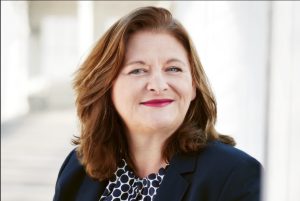 Dr. Anja Hochberg:
Dr. Anja Hochberg:
You should start early enough. I was already faced with a similar question 4 years ago due to a "gardening leave": What do I want to do in the next few years? An honest reflection of one's own abilities, but also of the market potential is helpful, but an education in the non-executive field (for me, e.g. at the HSG) is a basic requirement. One must not forget that one also has to penetrate new networks, as the current network may also be more reflective of the current profession. In purely operational terms, there has to be a good balance between structured work and "me-time" during the transition.
Veronika Lammer:
2 to 3 years before retirement, cultivate contacts and think about what you would like to do and to what extent you would like to work, also whether you want to take time off for travelling and how you can bridge this time well.
Katherine Starks:
It is important to know what you want to do and to start with courses etc. early. For example, I started my coaching training in 2015 and completed the certification in 2018. I am currently completing the team/system coaching certification.
Barbara Rojahn:
Good preparation should start a few years before the "exit". Two basic questions should be asked: "Do I want to enjoy my freedom completely now, or do I want to contribute my knowledge and experience to a paid or unpaid meaningful and challenging activity?" or "Do I need a break for now?" It is particularly important to maintain old networks and contacts and, if necessary, to establish new ones.
Evi Vogl:
Fortunately, I was able to determine the exit time myself, that was very important to me.
Mentally, you should start dealing with it at least 2 - 3 years before you leave. If you are still pursuing professional goals, you should talk to as many people as possible as soon as possible and share your plans. Only then will ideas come back from the network.
Michaela Krahwinkel:
As I said, I am much too late and have not yet done all my homework. The important thing is to decide for yourself what you want/can or must do: Work or privatise, earn extra money for retirement, get involved in society? And if you work, to what extent, with guidelines or self-determined?
But also giving oneself time and space to give creative ideas for the time after the end of one's current profession. Some colleagues have already continued their education long before the transition in order to be able to follow their goals later on. I am still short there.
What many also overlook, at least I think, is coming to terms with ageing. How do I cope with change, i.e. how do I deal with loss of power when I no longer have a leadership role? How do I deal with the signs and tributes of the times? And am I prepared to deal with new things and do I see them as an enrichment or a burden?
How did your transition go? What kind of requests do people come to you with?
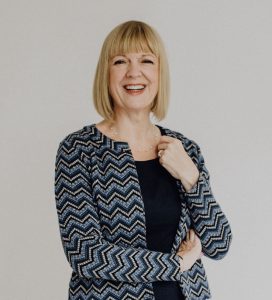 Katherine Starks:
Katherine Starks:
I currently do some things without pay, e.g. podcasts, panels etc.. This always results in new speeches. I also turn down some things if they don't pay enough or I don't think I'm the right person for it.
Barbara Rojahn:
The transition was completely smooth because it was well prepared. In the meantime, I have more to do than I originally intended. That's why I think very carefully about which assignments I still accept. The plan was also to spend more time with family, travel and hobbies.
Evi Vogl:
Due to the lockdown in 2020, I could only say goodbye to my professional network by letter or digitally. I was all the more positively surprised by the enquiries and that I also received requests from the wider network for projects and mandates.
Veronika Lammer:
Enquiries come mainly on the topic of fund women. I have to actively take care of my business myself. That would be easier if I had cultivated more contacts at an early stage.
Michaela Krahwinkel:
Many were pleased because they know how important the topics of my new task are to me. Many also reacted with incomprehension because you don't just give up a leadership position. Occasionally there were remarks like "yes, you've worked enough, now you can take a break! I found them really embarrassing.
Apart from that, I have a lot of responsibility because the expectation that I can make positive changes is quite high.
What does your business case look like now - after the transition?
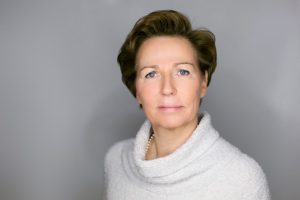 Veronika Lammer:
Veronika Lammer:
After the shock that I was no longer needed, I had many ideas on how I could become "important" again. In the end, however, I stuck to a topic that I had already built up before, namely seminars on the topic of the capital market.
Evi Vogl:
I am currently on 2 supervisory boards and have requests for 3 further mandates. In addition, I work on selected projects as a consultant. It is nice to be financially secure, therefore: Everything can, nothing must!
Michaela Krahwinkel:
I haven't reached my goal yet, but I've set out on the path. I completely changed my job within the company (and was able to do so, I am very grateful) and started from scratch, so to speak. I changed from being the head of the performance analysis department to being a consultant in the human resources department, from being a calculator to a change manager. I gave up my management job without batting an eyelid and now deal with change issues that are very important to me in my company. In addition to working on the Diversity & Inclusion Council, I am also involved in setting up networks within the company, currently our women's network.
But I would have to be much more concerned about my plans after reaching the age limit in the spring.
Katherine Starks:
Within 6 months I earn about half of what I need. I am positively surprised that things are going so well so quickly!
Barbara Rojahn:
Today I have four main focuses:
- Preparation of financial concepts for different phases of life (e.g. finances in a partnership, support during separation and divorce, professional support in the event of the death of a partner)
- Imparting financial knowledge in individual coaching
- Acting as executor with the aim of distributing the testator's assets in accordance with the testator's own wishes and to avoid disputes between the heirs
- Advising foundations on asset investment
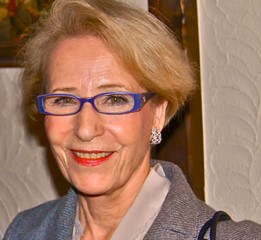 Fleur Platow:
Fleur Platow:
I didn't have a real transition in that sense. I got my job as my father's assistant at "Financial Times International Reports on Finance and Currencies" without an interview and 7 years later, after my father's death, I became the sole representative as Swiss correspondent for this Swiss subsidiary of the FT for 13 years. Then I founded my own seminar "Women&Finance". In the meantime, I have become so established here that the NZZ wealth management supplement devoted a whole page to my career in September 2022.
What surprises did you experience in connection with the transition?
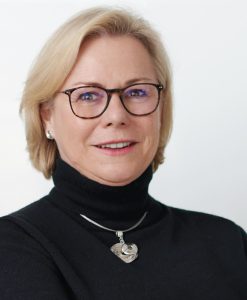 Evi Vogl:
Evi Vogl:
Actually, I wanted to take a long trip to start the new stage with some distance to the professional exit. Due to the lockdown, this was not possible.
Looking back, maybe that wasn't such a bad thing. I have taken many routines, e.g. weekly scheduling, with me into the new phase of my life. Even if it sounds strange: I also plan activities in the household or leisure time.
My week still starts on Monday morning with the sports physio. I only allow myself the luxury of being there at 9am now.
Veronika Lammer:
How completely haphazard I was at the beginning and how difficult it was to organise my day independently. Now I can do that very well and enjoy my new freedom.
Barbara Rojahn:
I was very surprised at how quickly a day or a week can be planned again, and the desired great freedom can disappear.
Katherine Starks:
Ich bin sehr positiv überrascht, wie einfach es ist, Kundinnen zu finden. Ich habe tatsächlich überhaupt keine Verkaufsaktivitäten begonnen. Ich bin auch überrascht, wieviel kreativer ich geworden bin, seit ich viel mehr Zeit für mich gefunden habe.
 Michaela Krahwinkel:
Michaela Krahwinkel:
I don't know if you can call it a surprise: In the past, I had a relatively high number of success stories, where a good analysis or important insights for senior management were the trigger. Now I consciously accompany some topics in the background and no longer stand on the stage. In my groups we work hierarchy-free, open-ended and agile - what a luxury! And my work for Diversity & Inclusion is not a sprint, but rather comparable to a marathon. So there is no quick sense of achievement for the ego either, and that can scratch it.
Thank you so much for these great answers that give such beautiful perspectives!



